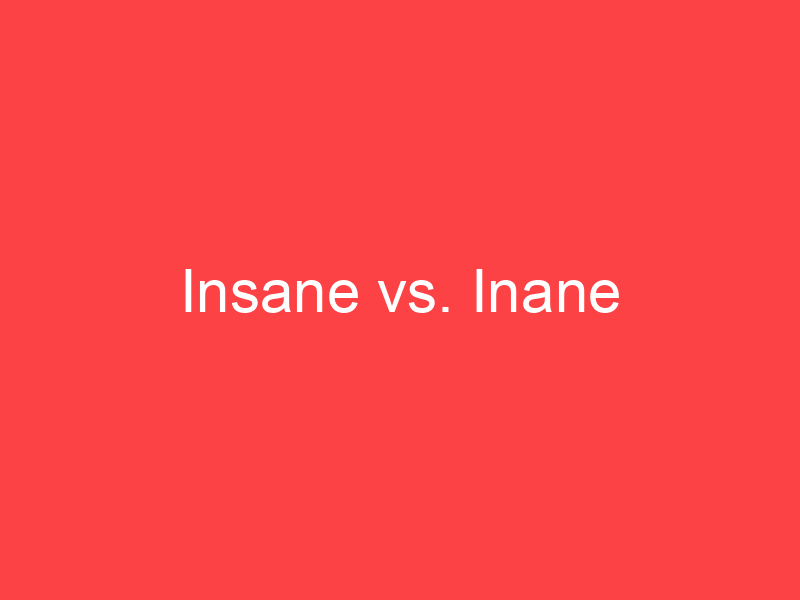-
Insane
Insanity, craziness, or madness is a spectrum of both group and individual behaviors characterized by certain abnormal mental or behavioral patterns. Insanity may manifest as violations of societal norms, including a person or persons becoming a danger to themselves or others, though not all such acts are considered insanity; it has been associated with the idea of contagion, as in the case of copycat suicides, likewise, not all acts showing indifference toward societal norms are acts of insanity. In modern usage, insanity is most commonly encountered as an informal unscientific term denoting mental instability, or in the narrow legal context of the insanity defense. In the medical profession the term is now avoided in favor of diagnoses of specific psychiatric diseases; the presence of delusions or hallucinations is broadly referred to as psychosis. When discussing psychiatric illness in general terms, “psychopathology” is considered a preferred descriptor.
In English, the word “sane” derives from the Latin adjective sanus meaning “healthy”. Juvenal’s phrase mens sana in corpore sano is often translated to mean a “healthy mind in a healthy body”. From this perspective, insanity can be considered as poor health of the mind, not necessarily of the brain as an organ (although that can affect mental health), but rather refers to defective function of mental processes such as reasoning. Another Latin phrase related to our current concept of sanity is “compos mentis” (lit. “sound of mind”), and a euphemistic term for insanity is “non compos mentis”. In law, mens rea means having had criminal intent, or a guilty mind, when the act (actus reus) was committed.
A more informal use of the term insanity is to denote something or someone considered highly unique, passionate or extreme, including in a positive sense. The term may also be used as an attempt to discredit or criticise particular ideas, beliefs, principles, desires, personal feelings, attitudes, or their proponents, such as in politics and religion.
-
Insane (adjective)
Exhibiting unsoundness or disorder of mind; not sane; mad
“delirious|distracted”
-
Insane (adjective)
Used by, or appropriated to, insane persons
“an insane hospital”
“an insane asylum”
-
Insane (adjective)
Causing insanity or madness.
-
Insane (adjective)
Characterized by insanity or the utmost folly; ridiculous; impractical
“an insane plan”
“an insane amount of money”
-
Inane (adjective)
Lacking sense or meaning (often to the point of boredom or annoyance)
“en|silly|fatuous|vapid”
“This supremely gifted kid told me that in the early elementary grades, the songs sung in music class were so inane that he wanted to skip grades already! Eventually he did, so better late than never.”
-
Inane (adjective)
Purposeless; pointless
-
Inane (noun)
That which is void or empty.

